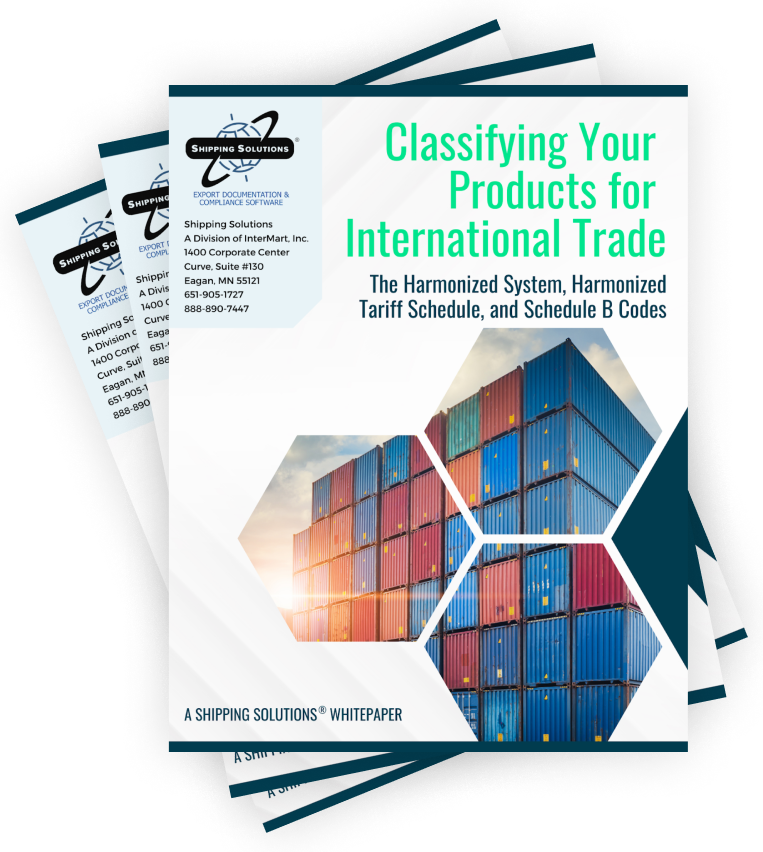The International Trade Blog Import Procedures
Classifying Your Goods for Import and Export Requires Expertise
On: August 13, 2018 | By:  John Goodrich |
5 min. read
John Goodrich |
5 min. read
 Following is a bit of light fiction blended with, I’m afraid, a heavy dose of truth:
Following is a bit of light fiction blended with, I’m afraid, a heavy dose of truth:
“Even a trained squirrel could do classification, John!” a product engineer at a manufacturing firm told me the other day when we were discussing the Harmonized Tariff Schedule (HTS) classification process at his company.
“What’s that you’re saying?” I had to restrain myself from reaching across the table and throttling him.
“Yes,” he sniffed arrogantly, “this classification nonsense really isn’t that difficult. Someone with my background and education shouldn’t be wasted on such a tactical exercise as assigning commodity codes to our products. Any clerical with a little training could be assigned this process.” He sniffed again, extending his hand to examine his manicure.
“Wow,” I thought to myself, “How does this guy get his head through the door every morning?”
“Trained squirrel? Huh, you don’t say!” was all I could verbalize as I seethed internally.
Those of you who know me personally know that it takes a Herculean effort for me to hold my tongue in the face of ignorance such as this. And amazingly I did, until now. In hindsight the following is what I really wanted to say to this buffoon:
Benefits of Proper Product Classification
Well, buddy, if I’m a squirrel then call me Rocket J. Squirrel! Of course, if that is the case then you must be Bullwinkle Moose! And we both know who the smarter one of that pair is.
I sense you hold yourself and your profession in high regard. I am sincere when I say you should indeed be proud of what you have accomplished in attaining your professional credentials. It is curious that you feel the need to diminish the level of expertise required for the profession of trade compliance.
Calling classification a tactical skill is like calling your finely drafted engineered drawings "pictures." Any trained monkey could draw pictures of your products!
Now that we have exchanged unpleasantries, let me share with you what has me cooking under the collar. I understand companies must make decisions regarding the level of expertise they will hire in their various business disciplines. Given an unlimited budget companies would hire only the best, most qualified professionals in management, finance, accounting, legal, regulatory compliance, purchasing, sales, marketing, logistics and, yes, even engineering.
Your company has actually recognized that they do not have the budget to hire a full-time trade compliance professional. They did recognize the need and have made the choice to delegate the classification process to a senior qualified employee. That person is you!
I understand how you would first perceive HTS classification as a tactical exercise. There are, indeed, times it can be tedious and appear mechanical. That is the case with many professional disciplines including your own.
The strategy and the skill within classification come in some of the following areas:
The Gray Areas
While classification, in theory, should be a straightforward process, it involves a certain amount of interpretation and subjectivity. Strategic thinkers will explore the gray areas of classification and use the process to their company’s advantage. This involves a considerable amount of research into extrinsic classification aids and classification rulings.
Trade Agreement Eligibility
Without properly identifying classifications you will be unable to examine sourcing options and to explore opportunities for participation in free trade agreements and duty preference programs. Staying abreast of preferential trade agreements is not something to be left to a trained squirrel.
Product Design and Specification
Sometimes minor changes in product design or component specifications can assist in reducing duties. By way of example, tool sets are subject to the rate of duty applicable to that tool in the set subject to the highest rate of duty. Strategically thinking importers, those who employ bright folks such as you in classification, quickly learn to separate out the higher duty rate items, such as wrenches from the sets and import them as individual components.
Regulatory Compliance Imperative
You wouldn’t consider having an unqualified clerk completing corporate tax returns would you?
The HTS classifications you identify are used in the completion of federal tax forms such as customs entries and USMCA certificate of origin forms. Customs regulations require importers to exercise a type of due diligence known as reasonable care in this area. Last I checked hiring trained squirrels did not demonstrate reasonable care.
Sarbanes-Oxley Obligations (SOX)
As a publicly traded company SOX requires you to be in compliance with all regulations. Since your company has already acknowledged weaknesses in your classification process, SOX rules compel you to take corrective action.
Contribution to Supply Chain Efficiencies
A quality classification programs assists an importer in reducing its time-in-transit by reducing delays at the border. Good classifiers don’t just assign numbers; they work cross-functionally within the organization to contribute to a smoothly functioning supply chain.
 The Competitive Advantages of Product Classification
The Competitive Advantages of Product Classification
Lest you think my profession suffers from an inferiority complex I would have you think again. People with trade compliance experience are in high demand today.
Best-in-class companies within industry have recognized that trade compliance is not just some unfunded regulatory burden. They now recognize the strategic and competitive advantage of robust, professional trade compliance. That includes classification. Otherwise said, your competitors get it.
To quote my teenage son, "You are sooo last millennium, dude!"
What has me most irked about your trained squirrel statement is that I know your company is struggling to remain competitive. I know and you know that your company over-paid $400K in duties because your previous trained squirrel incorrectly classified just one of your products.
In addition, I am here to help you succeed. Despite these facts, you fail to envision the strategic nature of this process and the significant positive contribution you could make to your company. You even fail to see how knowledge in this area will enhance your resume. This is extraordinarily frustrating and is behavior unbecoming of someone of your credentials.
And, yes, I have a meeting scheduled with your boss.
If after all of this discussion you still believe any trained squirrel can do classification I gladly accept the mantel. Call me Rocket J. Squirrel. Watch me fly!
Sycophantic Disclaimer to My Clients
The person described above does not depict any of you. You are all wonderful, attentive and compliant people without whom I would be destitute. I very much appreciate your business and respect you and the challenges you face within your companies.
Empathy for a Colleague
I extend my condolences to a business colleague to whom the above really happened. I hope you find my embellished version of your story therapeutic. I also hope this helps you find the words to respond to your boss the next time he uses the term "trained monkey" with you.
For sake of your career, I would recommend being more diplomatic than I have been here.
This article was first published in December 2007 and has been updated to include current information, links and formatting.

About the Author: John Goodrich
John Goodrich is an International Trade Consultant and Licensed Customhouse Broker with more than 25 years of experience in international trade. He is currently the principal in the consulting firm of JD Goodrich & Associates where his varied industry experience results in practical, actionable advice for his clients.
An active member in the Twin Cities round table of the Council of Supply Chain Management Professionals (CSCMP), he takes a strategic view of the roles of international compliance and logistics in the greater supply chain.


